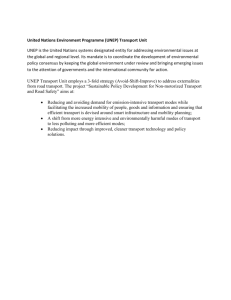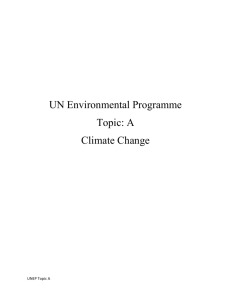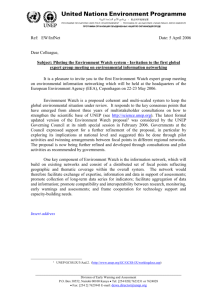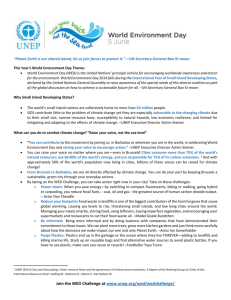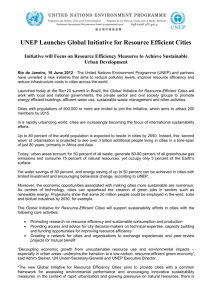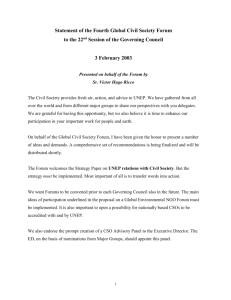Bali Guidelines
advertisement
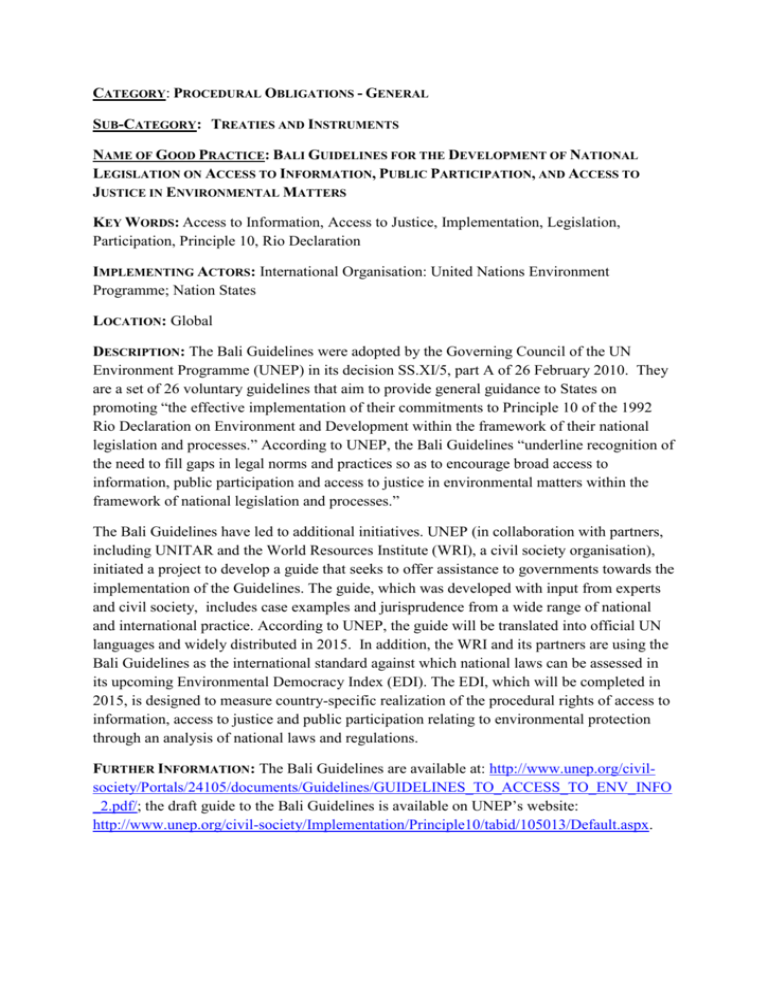
CATEGORY: PROCEDURAL OBLIGATIONS - GENERAL SUB-CATEGORY: TREATIES AND INSTRUMENTS NAME OF GOOD PRACTICE: BALI GUIDELINES FOR THE DEVELOPMENT OF NATIONAL LEGISLATION ON ACCESS TO INFORMATION, PUBLIC PARTICIPATION, AND ACCESS TO JUSTICE IN ENVIRONMENTAL MATTERS KEY WORDS: Access to Information, Access to Justice, Implementation, Legislation, Participation, Principle 10, Rio Declaration IMPLEMENTING ACTORS: International Organisation: United Nations Environment Programme; Nation States LOCATION: Global DESCRIPTION: The Bali Guidelines were adopted by the Governing Council of the UN Environment Programme (UNEP) in its decision SS.XI/5, part A of 26 February 2010. They are a set of 26 voluntary guidelines that aim to provide general guidance to States on promoting “the effective implementation of their commitments to Principle 10 of the 1992 Rio Declaration on Environment and Development within the framework of their national legislation and processes.” According to UNEP, the Bali Guidelines “underline recognition of the need to fill gaps in legal norms and practices so as to encourage broad access to information, public participation and access to justice in environmental matters within the framework of national legislation and processes.” The Bali Guidelines have led to additional initiatives. UNEP (in collaboration with partners, including UNITAR and the World Resources Institute (WRI), a civil society organisation), initiated a project to develop a guide that seeks to offer assistance to governments towards the implementation of the Guidelines. The guide, which was developed with input from experts and civil society, includes case examples and jurisprudence from a wide range of national and international practice. According to UNEP, the guide will be translated into official UN languages and widely distributed in 2015. In addition, the WRI and its partners are using the Bali Guidelines as the international standard against which national laws can be assessed in its upcoming Environmental Democracy Index (EDI). The EDI, which will be completed in 2015, is designed to measure country-specific realization of the procedural rights of access to information, access to justice and public participation relating to environmental protection through an analysis of national laws and regulations. FURTHER INFORMATION: The Bali Guidelines are available at: http://www.unep.org/civilsociety/Portals/24105/documents/Guidelines/GUIDELINES_TO_ACCESS_TO_ENV_INFO _2.pdf/; the draft guide to the Bali Guidelines is available on UNEP’s website: http://www.unep.org/civil-society/Implementation/Principle10/tabid/105013/Default.aspx.
